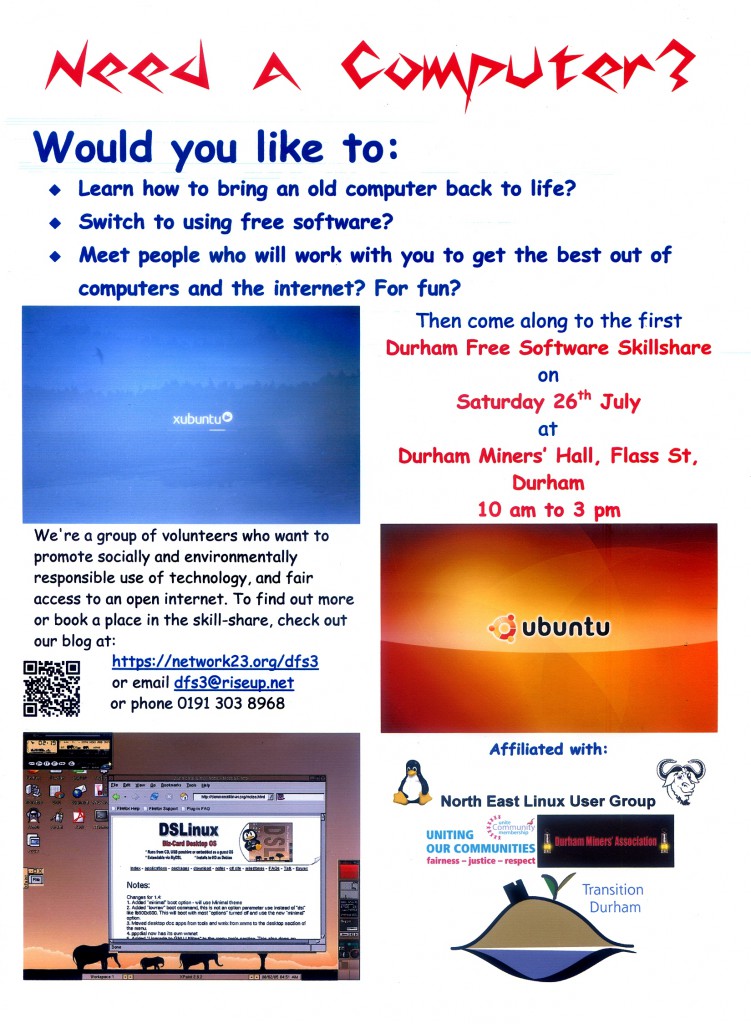Have you ever wondered why you have to buy a new computer every few years, even if the new one doesn’t do much more than the old one? Perhaps you’ve put an old computer in a cupboard because it doesn’t seem to work right any more, and you’ve never found the cash to get it fixed?
What if someone showed you how to fix it yourself, and gave you the skills to make it work how you wanted?
That’s just what this project sets out to do. The Durham Free Software Skill-Share (dfs3 for short) aims to give everyone access to a working computer in their own home.
The way we’ll be doing this is by taking computers that are a few years old – either the one in your cupboard or an unwanted machine from elsewhere – and setting them up using Free Software. You’d be surprised how well an old computer can work if you take away the programs you don’t need and use an efficient operating system like GNU/Linux (that’s a replacement for Microsoft’s Windows or Apple’s OSX).
Another surprise is that learning how to do this isn’t all that difficult, and can be a lot of fun if you go about it the right way. And once you’ve learned the basics, you can help support other people to get up to your level, while you take on whatever other IT challenge is relevant to you. It’s self-directed learning, supported by volunteers from North East Linux User Group and Durham Community Support Centre.
Re-using old machines has lots of social and environmental benefits, which you can read more about here. That’s why we’re involving Transition Durham, who have a lot of expertise in building community resilience as well as promoting responsible use of resources.
Our launch event is at the Miners’ Hall on July 26th 2014 and is open to all – but please let us know to expect you by using this form. If you have any questions about it, get in touch by emailing dfs3@riseup.net or by phoning 0191 303 8968. We’d be happy to discuss any special requirements you might have.
And by the way, some of the people who most need our help with this won’t get to hear about it from the internet if they haven’t got access to a computer. We’re relying on word-of-mouth communication to reach people, so have a think about it; do you know someone who doesn’t get to hear about good things because they’re not on line? Please give them our phone number.
If you could print out a copy of this poster, then let us know where you’ve displayed it, that would be a great help too.

